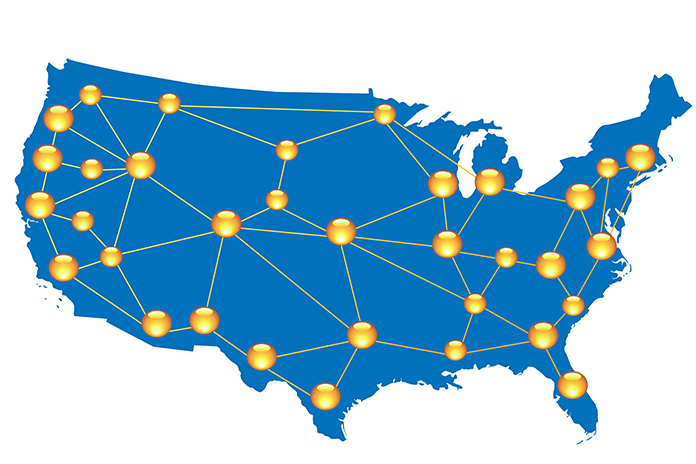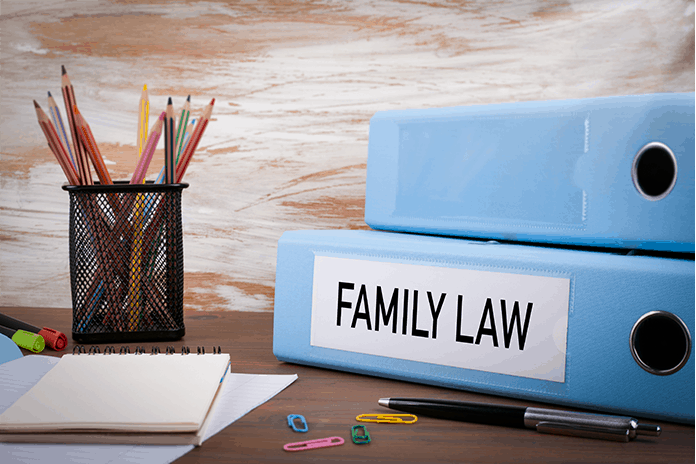If you have children and are getting a divorce in New Jersey, then the question of child support is going to be high on your list of concerns. Will you be able to get a positive outcome? One that is going to be a financial burden?
How is child support even calculated in NJ?
This guide serves as a brief overview and takes its information from the state’s support rules in Appendix IX-A.
Child Support Attorney Note: While we try to make this as easy to understand as possible, NJ child support is a complex matter that can have significant financial and personal effects. How those questions play out is largely the result of your representation, and how well they understand the complexities.
How NJ Child Support Guidelines Determines Parental Income
As mentioned in our introduction, child support guidelines in NJ are based on the combined net incomes of both parents, which is gross income minus certain taxes and allowed expenses. The courts rely on Appendix IX-B to determine what sources are countable in this calculation and may include:
- Wages, salary, other regularly paid income
- Tips, bonuses, overtime
- Business gains, including property sales
- Interest and dividends
- Alimony or maintenance you or the other parent receives
- Social Security or Veteran’s Administration income
- Disability payments
- Workers’ compensation
- Unemployment benefits
- Severance pay
- Gambling winnings
- Personal injury awards/settlements
- Rental property income
- Certain income tax credits and rebates
- Estate or trust interests
Considerations When Determining Child Support in NJ
Depending on the parenting schedule you have with the other parent, how support gets calculated can vary. For example, the court would use the sole parent NJ child support guideline worksheet if one parent is the sole custodian of a child. If a shared parenting situation, a different worksheet is used to compare both parents’ income and make a decision. This amount can be adjusted at the judge’s discretion based on certain costs and/or any overnight visitation that might occur with the non-custodial parent.
When you share custody of your child 28% or more of the time, then the chart in Appendix IX-D would be used to compare net incomes. Any additional overnight visits by the child could impact the award if the judge feels it is appropriate.
Read our complete guide to New Jersey child custody for any NJ child custody questions.
Factors Considered in NJ Child Support Guidelines
Visitation Schedules
As mentioned earlier, your visitation schedule directly impacts the amount of support paid. Non-custodial parents that have overnight visitation with their children between 28 – 50% of the time will likely have their payment amounts determined on the NJ child support guideline worksheet for shared parenting (Appendix IX-D). However, there is still room for a judge to exercise discretion when making this calculation, especially when considering expenses both families pay for the care of their child.
Read: What do New Jersey child support calculations look like for a tri-parenting arrangement?
Standard of Living for the Child
It is important to remember that the purpose of support is to recreate a standard of living that your child would have should you and their other parent were still together. This means that several socioeconomic situations can influence this calculation. Still, the amount ordered is only an approximation and makes no guarantees that their previous standard will stay the same.
Family Expenses
Any award issued will consider how much each family of the parents spends on their child(ren) on average. The court will consider three primary categories of expenses when determining how much child support is appropriate for your child to receive.
Fixed Costs
The expenses that the custodial parent must cover, regardless of when their child is home or not, are fixed costs. Typically, these are related to providing shelter, like your home’s mortgage and all the insurance, taxes, maintenance, and even equity loans associated with it. If you rent an apartment, then your property management fees, parking costs, and/or security expenses could fall under this category.
Keep in mind that the cost of maintaining your home is also considered fixed (utilities, furniture, appliances, domestic services like a nanny, etc.). If you or the other parent own a vacation home or timeshare, this may be a fixed cost. However, this is about your standard of living. There is no guarantee that having a rental home would mean you could qualify for a reduction/increase in support.
Variable Costs
The opposite of fixed costs is variable. These costs go wherever your child is and includes expenses related to things like food, entertainment, and transportation. For example, food and drink bought for their consumption can be at home or while at school, on trips, or in other situations.
When determining what qualifies as entertainment costs, the range can be a bit wide and include much of the following:
- Phone service
- Hobbies
- Sporting events
- Music concerts
- Entertainment involving movies and similar extracurriculars
This category generally includes standard activities that would be considered normal for a child. If it falls outside of the norm, it is possible it will not be considered under child support guidelines in NJ. You should also know that the non-custodial parent is not required by law to share in the cost of your child participating in sports, art programs, or even music lessons.
Additionally, transportations costs can include everything from the cost of owning or leasing a vehicle, including its maintenance and monthly payments. Toll road fees, E-Z Pass, and even roadside service clubs may be considered. All of this must be related to transporting your child, not expenses related to a vehicle they personally use as a teen driver.
Controlled Costs
If you are a custodial parent, there are a lot of costs you have to manage on behalf of your child to ensure they have everything they need. Clothing, for example, is a necessity for your son or daughter, including school uniforms, shoes, diapers, and the related care of these items.
The NJ child support guidelines also recognize the financial burden of supplying personal care and services for your children. This could include things like school supplies, cosmetics, magazine and/or book subscriptions, etc.
These rules also include unreimbursed medical expenses, though the initial $250 of these charges is the custodial parent’s responsibility. Once this threshold is exceeded, the additional money spent would fall under variable costs regardless of who the child is visiting.
Qualifying for a Deviation
In some situations, child support guidelines in NJ may not be appropriate when making an award determination. A judge may decide to deviate from the court rules and accommodate the parents’ circumstances.
To qualify, you or the other parent will need to show how your spending is not the norm compared to average family costs. For example, maybe the custodial parent does not have to pay rent because they live with a parent. This is significant savings, and the court may take this into consideration.
Additional Expenses a Court May Approve
After reading what factors are considered in NJ child support guidelines, you may realize you have additional expenses that do not fall under any of these categories. Fortunately, these rules recognize this fact and allow adding these other costs into the award. This is often necessary for the following situations:
- Child attends a private school
- Needs for your gifted or disabled child exceed those of an average family
- Parents live an extraordinary distance apart, causing significant travel expenses for visitation
- Child care
Read about changes to New Jersey Child Support when your child has a driver’s license.
These are just examples of when such costs might need to be added to a determination based on state guidelines. Court approval is necessary, and the presiding judge in your case will likely expect any of these additional costs that are not recurring or predictable to be shared in accordance with your and the other parent’s income according to Appendix IX.
For instance, if you are the custodial parent who relies on child care services, this expense is not included in Appendix IX. However, it is recurring, and the court will consider the net cost you pay (minus any tax credits) of work-related sitting costs. The judge must then determine how much of your childcare fees are added to the already determined support award.
The process is much the same when asking the court to add your child’s tuition costs for a private school. If you and the other parent have always sent your son or daughter to this type of school, the court would likely view this as part of the standard of living. This cost would like to be split between you both based on your income.
Adding additional expenses to a child support award in NJ is done case-by-case. To ensure the court makes the right decision in such matters, it is vital you work with a skilled NJ child support attorney. They are familiar with what usually qualifies for addition and the standards the court will require the requesting parent to make before potentially granting the expense be included.
To get a better idea of what amount of support may be ordered in your case, the NJ Child support guideline worksheet can prove helpful. With a few quick details about your income, expenses, and parenting time, you can get a general idea of what to expect.
Learn More About NJ Child Support Guidelines and Receiving a Fair Calculation
When trying to reach a fair amount for child support, you want to ensure that the amount ordered adequately meets the needs of your child and the standard of living they are accustomed to. The NJ child support attorneys of Fabrikant Law have advised and represented parents navigating this often frustrating area of family law for many years.
Our experienced attorneys are here to assist you in understanding your rights and address any concerns you have about this process. We know that every family situation is unique and will strive to ensure the best solution is achieved to protect the future of you and your child.
To learn more about how NJ child support guidelines determine parental financial responsibility for their children, please get in touch with us online or call our offices today at (732) 659-4109. Schedule a consultation with one of our qualified and experienced attorneys.




